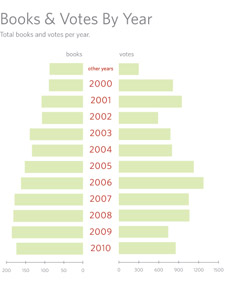For some, book releases tend not to be tied to a specific year. You remember the last time you read a good book more than you remember it’s actual year of publication. We saw this occur over and over in the Reader’s Poll. (To the point where Cryptonomicon probably would have made it to the top 10 if it hadn’t been pointed out early on that it was published before the millennium.)
Given that we had eleven years of releases that were eligible, this also made us curious as to how the glow of an exciting recent release affected the overall voting patterns. Did the votes tilt towards the shiny and new?
Relatedly, we were also curious if any particular genre came out ahead, and by how much, and also how the books voted as best in a popular vote would match up against books nominated for Hugo, Nebula, and World Fantasy awards.
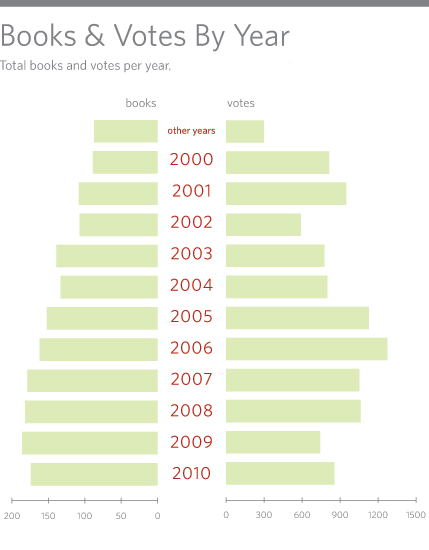
Download a PDF of the full above chart here.
At first glance, it appears that our memory best holds fiction from the past five years, but that conclusion isn’t so certain when you look at the top-ranking books from each year, the data of which is included below and in the full PDF of the above chart. In fact, aside from outliers like 2002 and 2009, votes seem to run somewhat evenly across the decade.
In regards to awards, at least one of the three top-ranking books in each year were nominated or won a Hugo, Nebula, or World Fantasy award. Except for 2007, which is puzzling when one considers how strong a showing The Name of the Wind made in the Reader’s Poll.
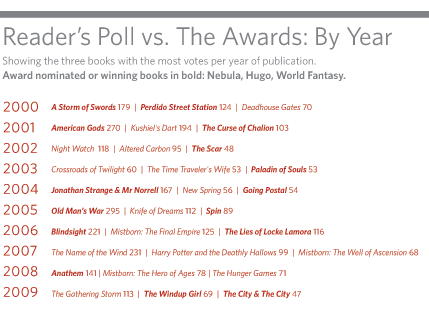
Download a PDF of the full above chart here.
- Out of thirty books, number that were nominated for or won either a Nebula, Hugo, or World Fantasy Award: 15 (50%)
- Years in which two of the top three were on any of the three major award ballots for that year: 6 of 10
- Of thirty books, number that are science fiction: 7 (23%)
- Of these, number that were nominated for or won a Hugo or Nebula: 5 (71%)
- Of the four years in which the same book won both the Hugo and the Nebula, years in which that book was among the three with the most votes: 3
- Years in which none of the top three were on either ballot: 1
In addition, here is how the top 50 titles fared awards-wise:
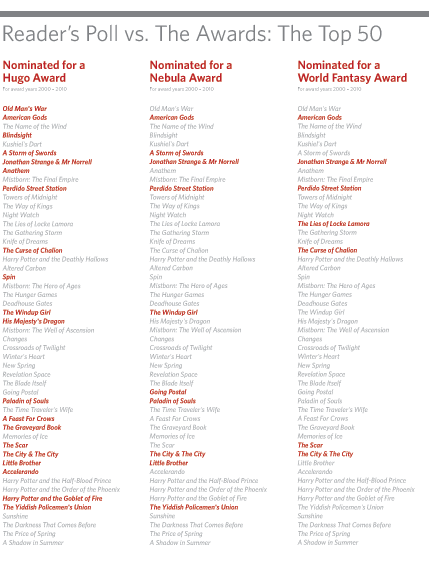
Download a PDF of the full above chart here.
Finally, here is how the top 50 broke down by genre and by series. The clear winner was epic fantasy, which one could logically expect from Tor.com. That also goes a long way towards explaining why so many of the top 50 books were part of larger series.
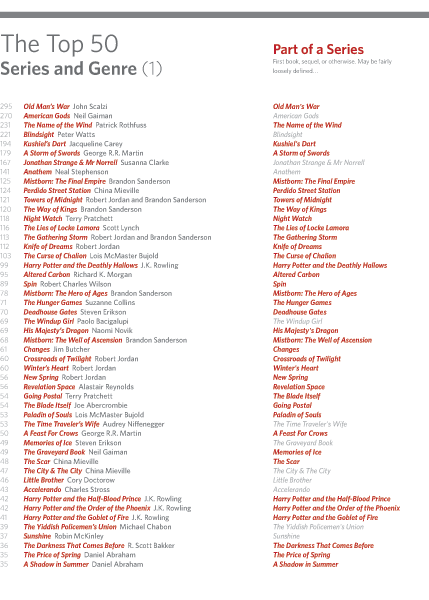
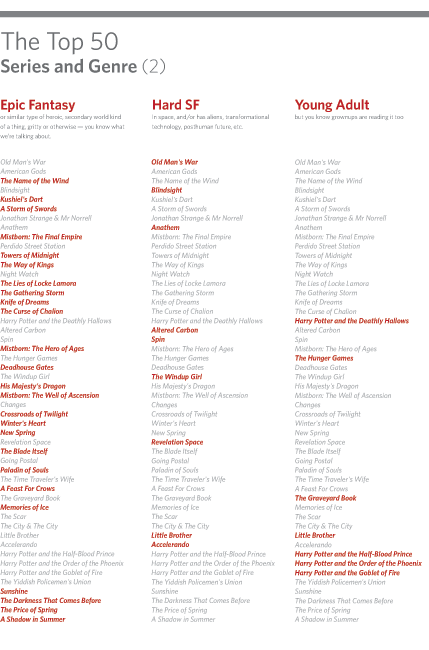
Download a PDF of the full combined chart here.
We’ve got a handy index of all data and appreciations here. Check back with us about this time tomorrow, as we look at the total votes by individual writers. Who are the top ten authors? Who are the most consistent? We’ll let you know!










